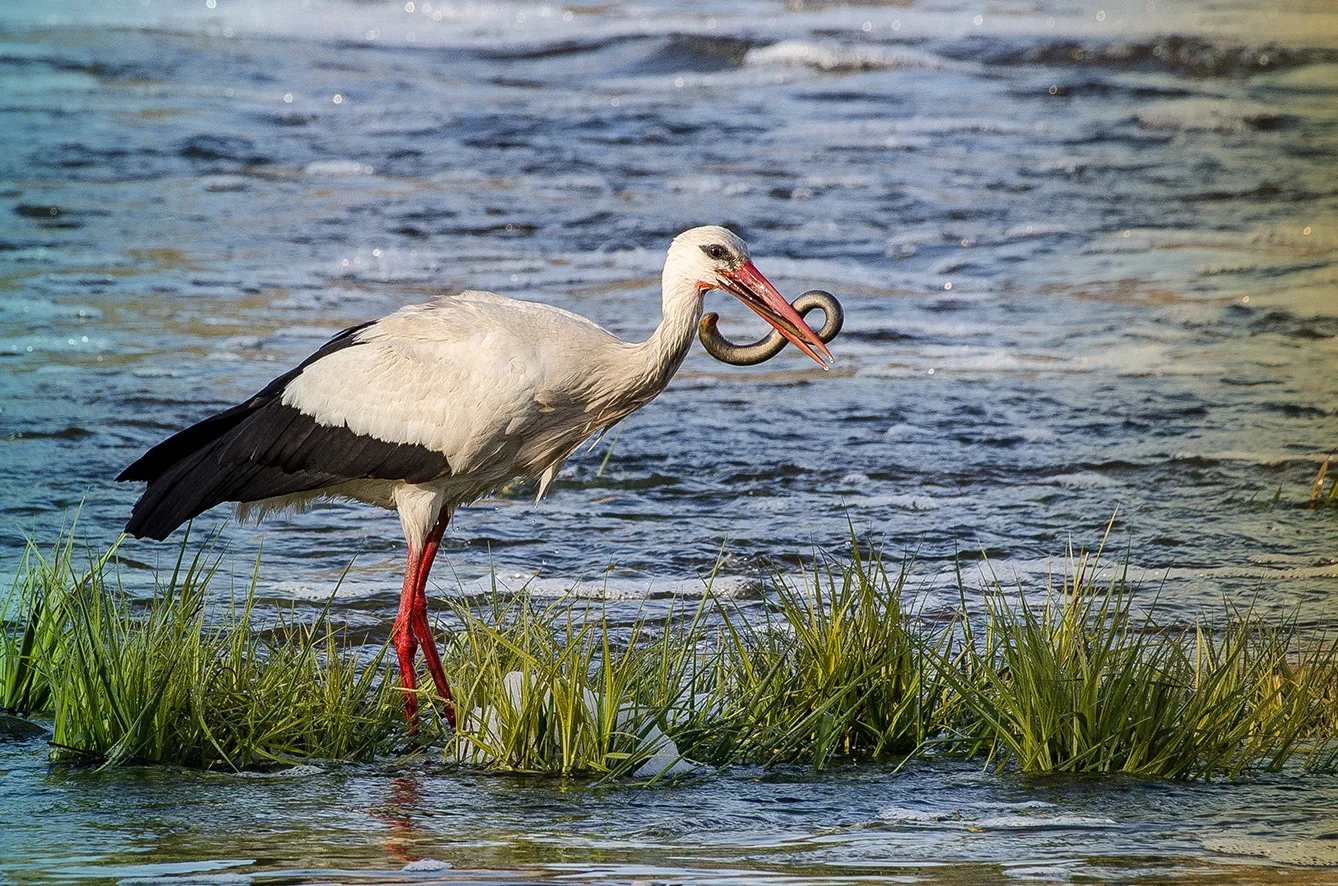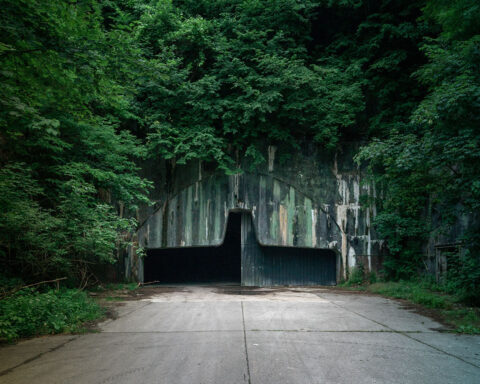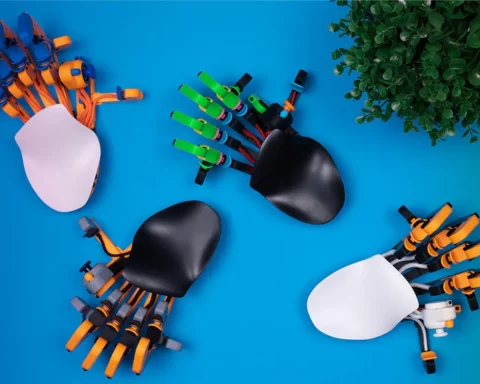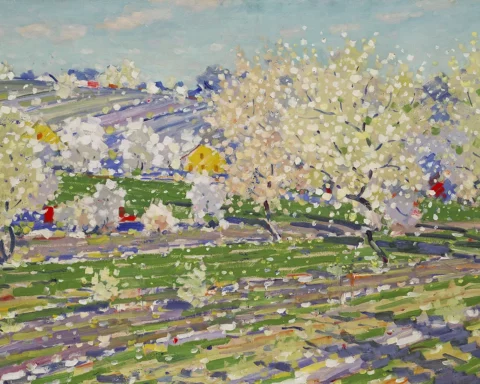An eerie-looking fish with razor-sharp teeth, the lamprey has a reputation for being a blood-sucking parasite. It’s also a delicacy. While habitat degradation and overfishing have led to populations diminishing around Europe, in Latvia, the practices for catching and processing the fish are cherished, especially given the knowledge that their future is under threat.
Here, the Baltic Sea’s seal population competes with the fishermen to get its share of the fish. While seals feast on the lamprey in the sea, fishermen catch them when they have moved to the rivers to spawn. Traditionally, lamprey fishing in Latvia relied on a set of contraptions called “murdi” (traps) and “tači” (weirs). Nowadays, weirs are few and far between but can still be seen on the Salaca and Svētupe Rivers in season. The weir is a wooden platform that stretches across the river. The fishermen attach the traps to it. In a labor of love, the fishermen rebuild their weirs every year.
Lamprey: caught, cooked, and celebrated in Latvia
Lamprey is a versatile ingredient, commonly cooked on a fire, jellied, or boiled in soup. People also use it in pies, salads, and even sushi. Since it is a boneless fish, you eat the whole thing. Nowadays, the lamprey festivals are one of the best occasions to try it. Indeed, in an accurate illustration of Latvians’ love for lamprey, three towns celebrate a day in honor of the species. The fairs in Carnikava, Salacgrīva, and Pāvilosta are an occasion to meet the locals, learn about their livelihoods and taste the freshest produce straight from the source.
Carnikava welcomes curious gourmets in August to mark the start of the fishing season. One of the main events is the parade featuring a giant lamprey replica. Other highlights are boiling a 400-liter pot of lamprey soup on a live fire and the lamprey-eating competition. “Carnikava is lamprey, and lamprey is Carnikava,” says Jānis Galakrodznieks, tourism information specialist at the Carnikava Local History Center, to underline the significance of the fish to the local economy and community.
He shares that lamprey is the cornerstone of Carnikava’s identity and local pride. Locals have cultivated the fishing and processing tradition since the 17th century. Preserving this heritage is also about “preserving the health of the river Gauja’s ecosystem,” Jānis speaks of the ongoing conservation efforts, which the festival is a part of. “Only active efforts to inform and involve the public in the tradition can ensure its viability.”
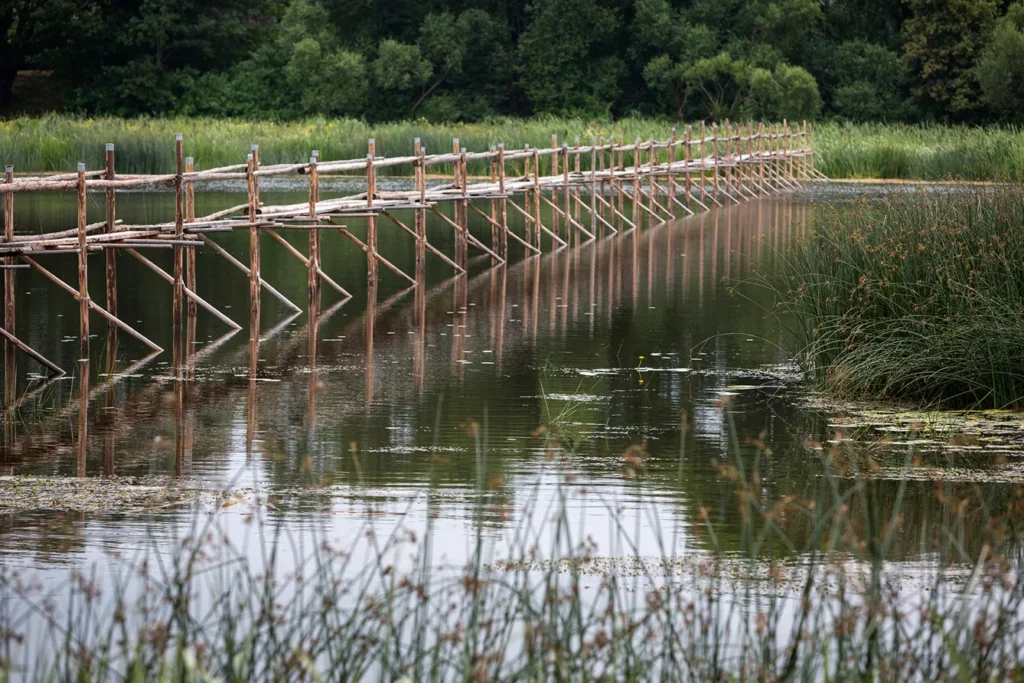
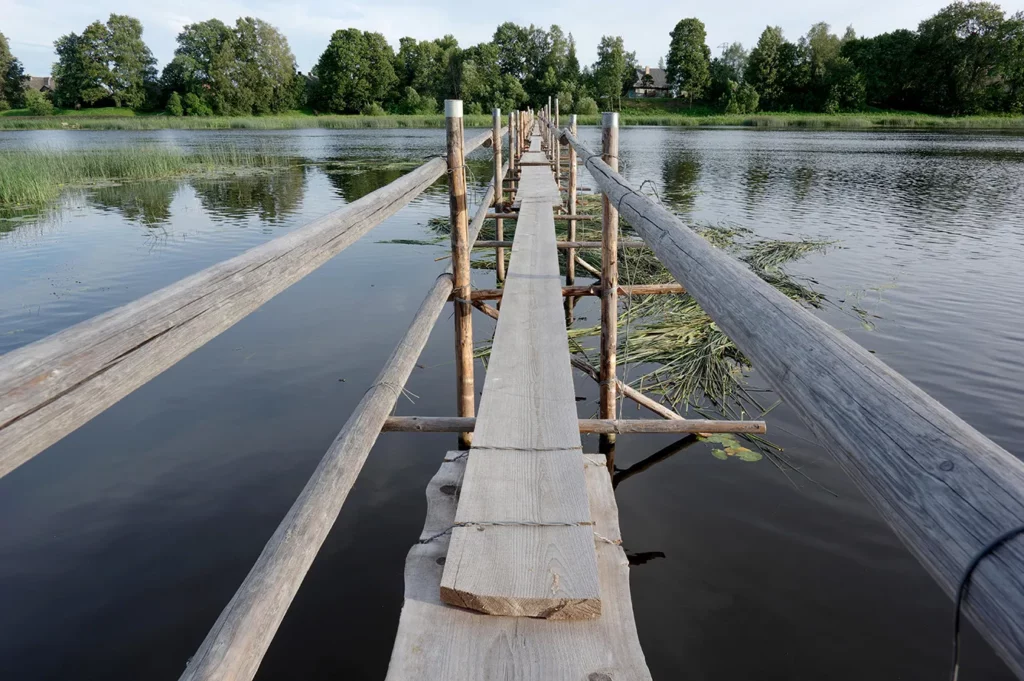
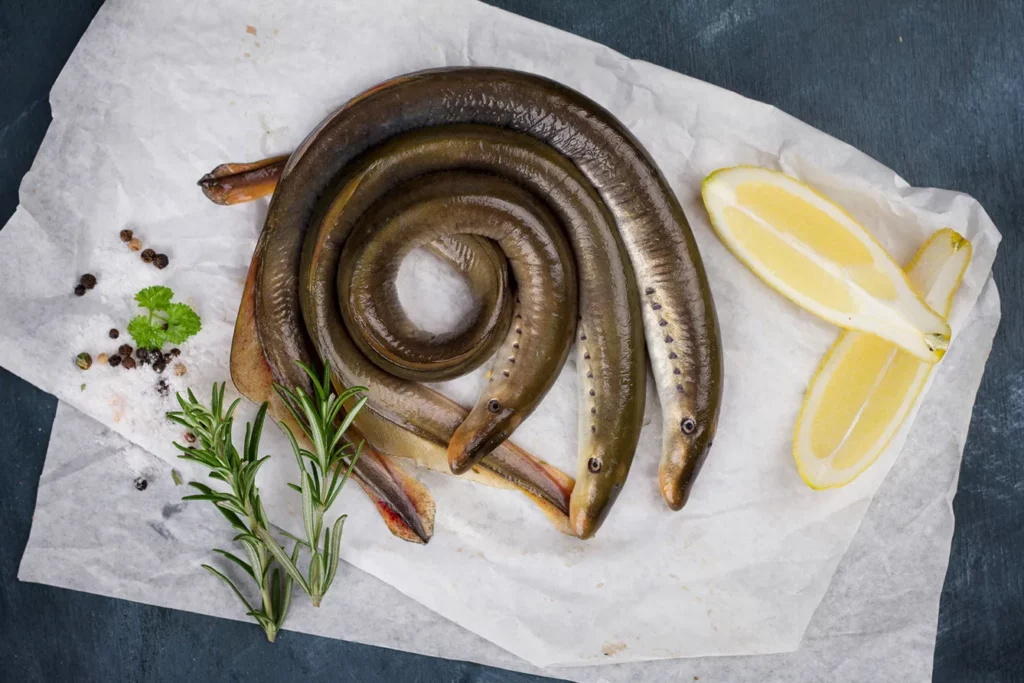
Salacgrīva gets the grill going in October. It has become a region-wide affair in recent years, with fisheries opening their doors to hungry guests. Then, in October or November, comes the turn of Pāvilosta, a surf town on the west coast of Latvia. The programs are largely similar with catering, music, and plenty of opportunities to buy lamprey – fresh or cooked.
Recognized for their uniqueness
Both Carnikava and Salacgrīva lamprey have acquired the European Union’s Protected Designation of Origin status. The skills in catching and processing lamprey in Carnikava are on the list of Intangible Cultural Heritage of Latvia. Hopefully, all the preservation efforts combined will be enough to ensure a long and prosperous future for the lamprey and its fans in Latvia.


